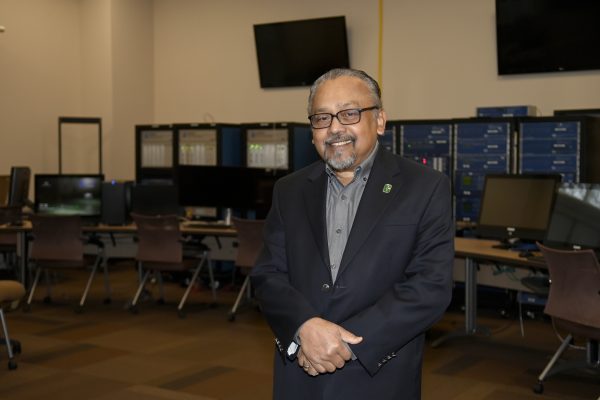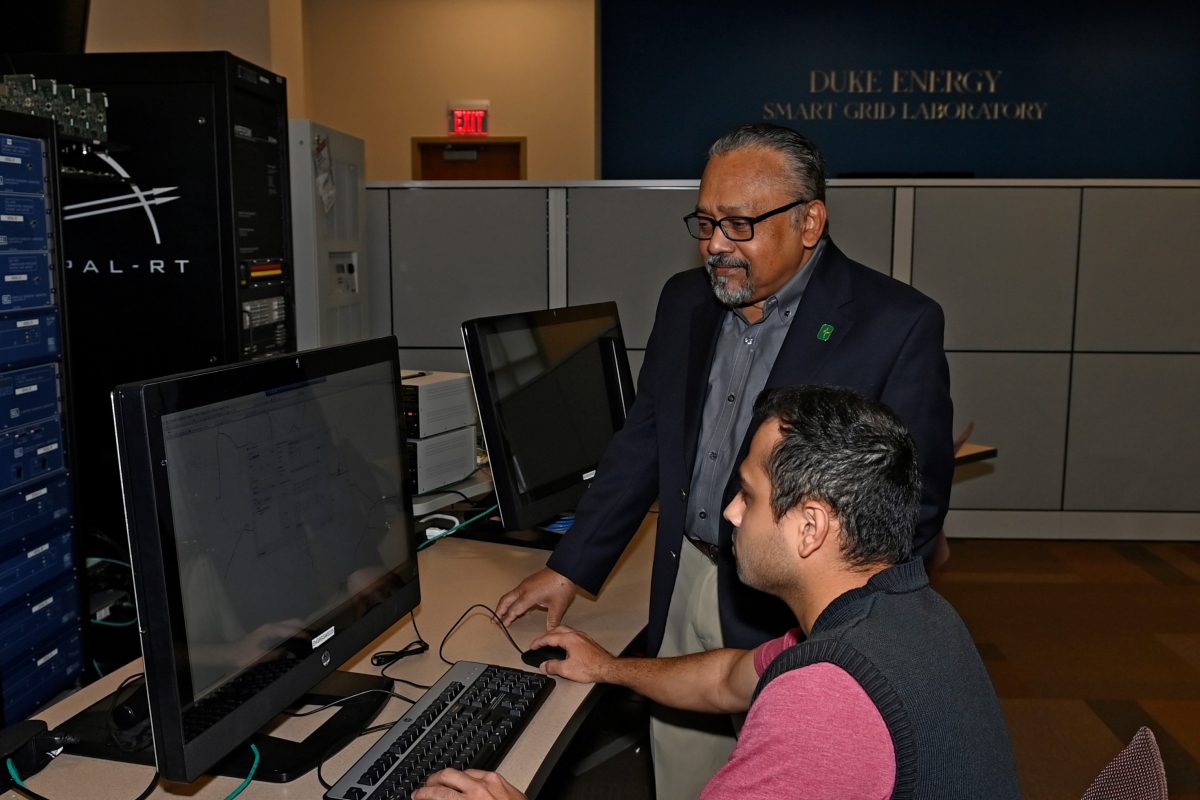Driving Solutions for Critical Energy Challenges

Badrul Chowdhury, Professor of Electrical and Computer Engineering with joint appointment in Systems Engineering & Engineering Management, was awarded a $4 million research grant entitled “Resilient Community Microgrids with Dynamic Reconfiguration to Serve Critical Loads in the Aftermath of Severe Events” from the Department of Energy (DoE). This award from the DoE’s Solar Energy Technologies Office (SETO) will help Dr. Chowdhury and his team from UNC Charlotte’s Energy Production and Infrastructure Center (EPIC) design an advanced architecture that will seamlessly control the interface between the bulk power grid and the community-based microgrid system.
This is especially important since severe weather causes electrical outages across the nation, resulting in long and expensive recovery. Typically, it takes even longer for underserved and rural communities to recover.
Ultimately, Chowdhury’s advancements will help underserved communities get back up and running more quickly after a natural disaster. With a reliable system, community microgrids can help provide backup power from renewable sources, supporting critical infrastructure and services, like fire stations, after a storm. The new technology designed to support these microgrids works by balancing the power load, continually predicting faulty conditions, ensuring safe operating conditions and more.

Essentially, Chowdhury’s solution will reduce the likelihood and consequences of power outages.
Chowdhury’s studies are producing first-of-its-kind algorithm assessment of community microgrids, allowing for real-world application and impact. The project relies on digital twinning tests which provide direct, real-time connections between UNC Charlotte labs and major utilities in North Carolina.
“Innovations like the resilient community microgrid project are prime examples of how EPIC’s public-private partnership model is driving new solutions to critical energy challenges,” said Rob Keynton, Dean of the William States Lee College of Engineering.